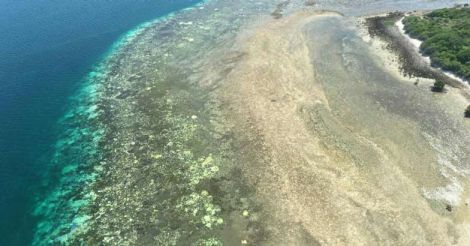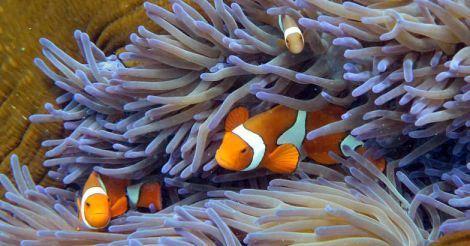Canberra: Mass bleaching has killed 35 per cent of the coral in the Great Barrier Reef in Australia, the world's largest coral system, according to a report released on Monday.
Experts from James Cook University's ARC Centre of Excellence for Coral Reef Studies made analyses by air and submarine of the impact of bleaching in the ecosystem, which stretches 2,300 km off the country's north-eastern coast.
 Bleached coral reef. File photo
Bleached coral reef. File photoResults indicated that the worst affected area is located off the coast of Townsville and Papua New Guinea, while in the region located south of Cairns, the average mortality is 5 per cent.
"Fortunately, on reefs south of Cairns, our underwater surveys are also revealing that more than 95 percent of the corals have survived, and we expect these more mildly bleached corals to regain their normal colour over the next few months," Mia Hoogenboom of James Cook University said in a statement.
The researchers also found that in Kimberley, north of Cairns, 80 per cent of the coral has been severely affected by bleaching and at least 15 per cent have died.
The director of the reef studies centre, Terry Hughes, said this year is the "third time in 18 years that the Great Barrier Reef has experienced mass bleaching due to global warming, and the current event is much more extreme than we've measured before."
Hughes explained that the three events of coral bleaching that occurred in the last 18 years coincide with the one degree Celsius rise in temperature above that recorded in the pre-industrial period.
Corals have a special symbiotic relationship with a microscopic algae called zooxanthellae, which provides them with oxygen and a portion of the organic compounds produced through photosynthesis.
 Clown fish seeking refuge in the bleached Great Barrier Reef. File photo
Clown fish seeking refuge in the bleached Great Barrier Reef. File photoWhen subjected to environmental stress, many coral reefs expel their zooxanthellae en masse, and coral polyps are left without pigmentation appearing almost transparent on the white skeleton of the animal, a phenomenon known as bleaching.
The health of the Great Barrier Reef, home to 400 types of coral, 1,500 species of fish and 4,000 types of molluscs, began deteriorating in the 1990s owing to warming sea water and an increase in its acidity through the increased presence of carbon dioxide in the atmosphere.
(With agency inputs)






























